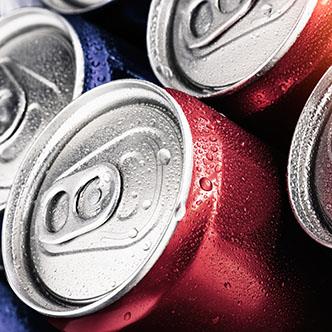
By CardioSmart News
Drinking too many sugary drinks has been linked to a number of health problems, including weight gain, type 2 diabetes, heart disease, tooth decay and more. These harmful effects have led to efforts to curb consumers’ intake of these sugar-loaded beverages, which are full of calories and have little nutritional value.
A recent study, published in the Annals of Internal Medicine, showed that increasing the price of soda and other sugar-sweetened beverages by adding a tax—in this case, 1 cent per ounce applied at the point of sale—led to substantially fewer drinks being sold in the greater Chicago area.
Researchers at the University of Illinois at Chicago School of Public Health aimed to measure the impact of a tax in effect from Aug. 6 to Nov. 25 in 2017 in Cook County, Illinois. The soda tax was intended to improve public health by reducing the purchase and, therefore, consumption of sugary drinks and raising funds for the county, according to the researchers. But the controversial tax lasted only four months and was repealed.
To study purchase patterns and behaviors, the research team used data from store scanners to track the number of beverages sold in Cook County, and within its 2-mile border area, in supermarket, grocery, convenience, and other stores before and after the tax was in place . They also compared this data to purchases made during the same time periods in St. Louis County, Mo., where there was no sweetened beverage tax.
The tax effectively reduced consumption of sugar sweetened beverages, researchers found. These drinks are known to contribute to many chronic health conditions. The data showed that, on average, sales of taxed sweetened beverages in Cook County decreased by 462,155 ounces and a net 21%. There was no significant increase in the untaxed beverage sales. Sales of soda dropped the most and those of energy drinks the least. The largest impact was seen on the sale of cases and liters of soda, which carried the greatest tax burden. Family-size soda sales fell by 34%, whereas individual-size soda dropped only 10%.
One unintended consequence of the local tax was an increase in purchases across state lines. But these purchases were limited to the taxed sweetened beverages, not for untaxed beverages, which the researchers said reinforces the idea that changes in buying patterns were to avoid the added sweetened beverage tax. Without accounting for the increase in cross-border shopping, the volume of taxed sugary drinks decreased by 27% relative to purchases in St. Louis as the comparison site while the added tax was in place.
The study is limited by its short duration . It also included only ready-to-drink beverages and not powdered drink mixes, frozen juices, fountain drinks or energy shots.
Still, like taxes levied on cigarettes, this is one strategy being studied to try to limit the consumption of sugary drinks.
For more information, about heart-healthy eating, go to CardioSmart.org/EatBetter.
Read the original article: “The Impact of a Sweetened Beverage Tax on Beverage Volume Sold in Cook County, Illinois, and Its Border Area,” Annals of Internal Medicine, March 17, 2020.